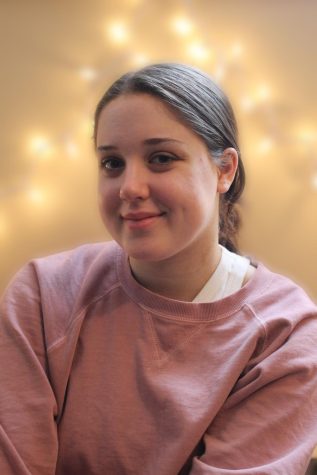Privilege in the face of pandemic holidays
December 1, 2021
I sit here writing this, on Thanksgiving night, in my apartment.
Alone.
COVID-19 has ravaged the country and the world. And tonight, it has ravaged my world.
A close family member of mine was hospitalized with COVID-19, and I’ve spent the entirety of Thanksgiving break distanced from my family — the ones who make the holidays so special.
Normally, Thanksgiving is my favorite holiday. Something about family being able to gather and the presence of delicious food is a recipe for magic.
But Thanksgiving this year has given me the opportunity to reflect on privilege, especially when it comes to COVID-19.
This Thanksgiving may suck for me. It may be lonely and painful and tear-filled.
But how lucky am I that my family is in a position where one of us can afford to go to the hospital if we contract COVID-19? How lucky am I that I have my own place to live, even if it is lonely on this holiday? How lucky am I to have a wonderful family that it hurts to be apart from on a holiday such as this?
Not everyone has these privileges. I am grateful for the privilege I hold as a member of a white, middle-class family.
I have the privilege of being able to get medical care whenever and wherever I need it. I have the privilege of food on my table, even if I am the only one eating it this holiday. I have the privilege of a phone that works to call my family when I am lonely.
Not everyone can say the same. Which is why it is so important to have an attitude of kindness and empathy not only this holiday season, but all of the time.
But it is not enough to merely recognize or “check” these privileges. Self-awareness means nothing without correlated action.
I work as a barista at a coffee shop in downtown Erie, and this year I worked on Thanksgiving morning. Working almost anywhere in downtown Erie means a firsthand exposure to members of society who may be on or below the poverty line.
During my shift on Thanksgiving morning, seeing some of our regulars from this group, like Eddie, who loves hot chocolate and always tells me about the latest DVD he borrowed from the library, or Aggie, who doesn’t have the literacy to read our menu but always tells me she likes my hair, or Corzell, who spends the day reading classic literature and writing and always tips, even if it’s just a few pennies, made my heart so full.
But seeing these regulars on Thanksgiving morning while someone dear to me was in the hospital with COVID-19 also made me wonder: What would happen if one of them, who are so sweet and interesting and human, were to contract COVID-19?
The thought broke my heart.
It is so important to seek out opportunities to humanize those we might not necessarily relate to on levels such as class, age or occupation. Because it is then that we start asking questions like: How do we as a society need to evolve to ensure that every human being is seen, heard and cared for?
Checking and acknowledging our privilege is important, yes. But it is not enough.
Until we start asking those questions, we will never be able to humanize others, and stop seeing those who are different from us as anything except “the other.”
ANNA MALESIEWSKI





